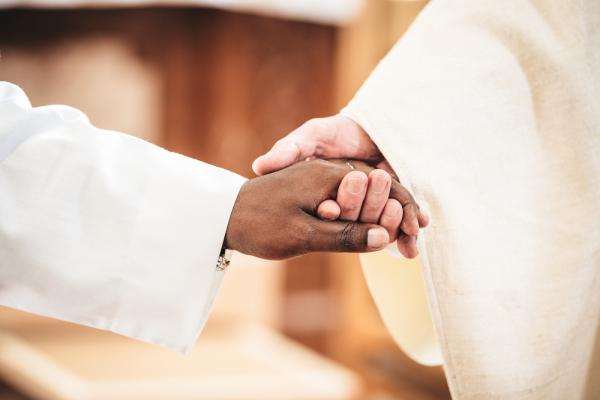When I was a kid, my culturally Jewish parents distributed a mimeographed sheet in our Bronx, N.Y., neighborhood explaining why it was OK to be an atheist.
They would send me outside on Yom Kippur, the holiest day of the Jewish calendar, in torn jeans and a dirty shirt to play ball on our stoop while our neighbors dressed up and went to synagogue.
So I was the least likely person to lead a project at KCPT-TV, the PBS station in Kansas City, Mo., called Beyond Belief. For more than eight months, the project probed the city’s churches, synagogues, and mosques, as well as secular gathering places, and asked whether faith communities could help solve the city’s persistent problems of race, class, and inequality.
Having lived just 10 percent of my life away from the East or West coast, I was completely unprepared to be in a place where faith is intertwined with so many aspects of life.
The most prominent political leaders in town emerged from churches, including U.S. Rep. Emanuel Cleaver II, a former pastor, and Kansas City Mayor Mark Holland, also a pastor.
I asked Holland if there was any contradiction between his civic and religious roles. Though he’s stepped back from the day-to-day pastoring of Trinity Community Church, he said his Christian duty to the poor has helped focus his efforts on a stressed city trying to make a comeback from years of neglect.
Cleaver, too, made it clear that gun control was a moral issue for him when he sat side by side with Georgia Rep. John Lewis on the floor of the House of Representatives during a civil rights style sit-in last month.
Each of these leaders mixes his spiritual mission with a commitment to social justice that is unique and powerful in the city.
Social and racial justice is also the primary work of two faith-based Kansas City groups addressing the city’s notorious racial divide. One initiative unfolded over six months starting last fall and culminated in a February meeting where black and white congregations came together to report on their internal discussions about race, which had unfolded over several evenings.
In my experience here in Kansas City, the received wisdom that “Sunday morning is the most segregated hour in America” is only partly true. Yes, churches divide up along Troost Avenue, which slices through the city dividing black and white. But churches are also the main institutions reaching across that line.
The sometimes raw and often powerful testimonies about racism and white privilege that were shared back in February continue to reverberate; their work recognizing racism and fighting for justice continues.
The main thing I’ve learned in my time in Kansas City is that my assumptions about Americans and their God-given right to individuality are all wrong. Everyone does not aspire to thrive in his or her own bubble. In Kansas City, nobody needs to bowl alone. Most humans hunger for community, and in Kansas City, faith is at the heart of that quest.
The fast-growing United Methodist Church of the Resurrection has 20,000 members and is building a $90 million cathedral, all in the service of community.
Christian millennials are a growing presence in the city’s business and arts scene.
That’s not to say that Kansas City doesn’t have its share of “nones.” Plenty of people, especially young people, prefer brunch to church on Sunday mornings. But even the atheists and Buddhists meet on the seventh day to share community.
I’m leaving town in a few weeks, but I’ll be heading home to Washington, D.C., changed and chastened. I’d bought the narrative that religion was somehow coming to an end in the U.S. and none too soon. Now that I’ve found God — at least what the divine could look like for me — I’ll continue to seek out ways to encourage those who do believe to go “beyond belief,” to love.
Got something to say about what you're reading? We value your feedback!
